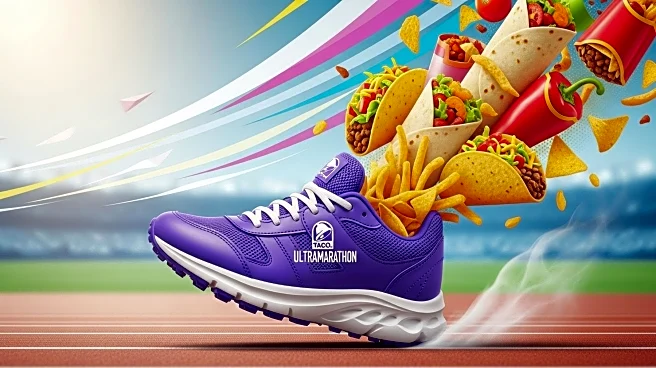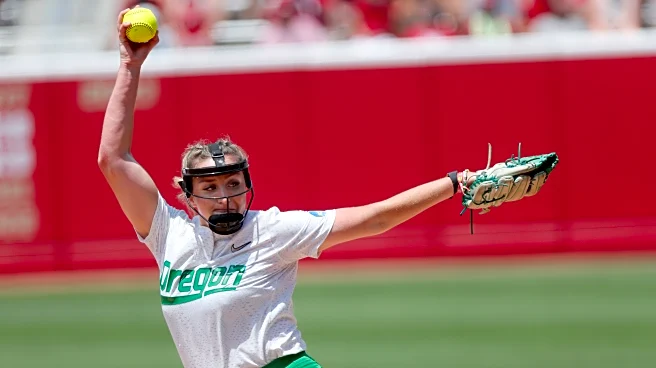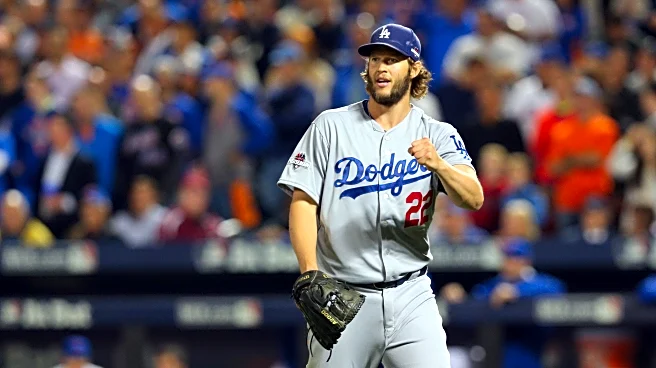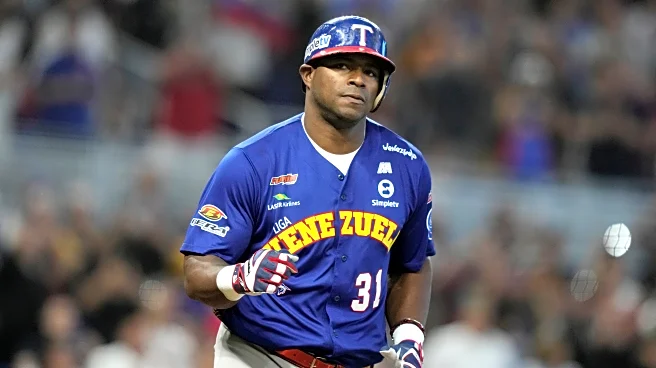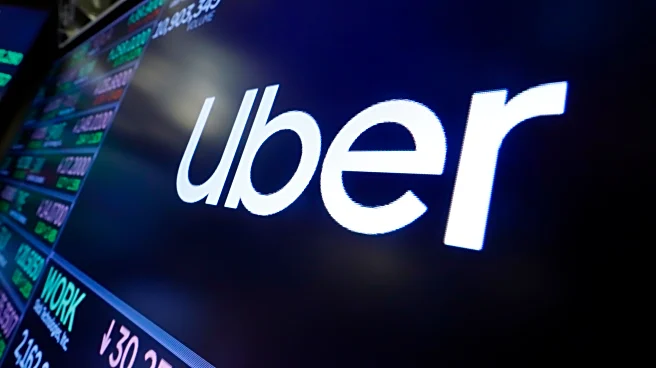What is the story about?
What's Happening?
The International Taco Bell 50K Ultramarathon is set to take place on October 5, drawing approximately 1,200 participants to Denver. This unique race requires competitors to run a 31-mile course while stopping at nine Taco Bell locations to consume specific menu items. The event, not officially affiliated with Taco Bell, challenges runners to eat items like the Chalupa Supreme and Crunchwrap Supreme during the race. Participants must complete the course within 11 hours without using performance-enhancing drugs like Pepto-Bismol. The race, known for its high dropout rate, combines the physical demands of an ultramarathon with the digestive challenge of consuming fast food.
Why It's Important?
The Taco Bell Ultramarathon highlights the growing trend of unconventional endurance events that blend physical challenges with unique themes. This race not only tests physical endurance but also the ability to manage food intake under extreme conditions. It attracts a diverse group of participants, from seasoned ultramarathoners to those drawn by the novelty and humor of the event. The race's popularity, fueled by social media, underscores a cultural shift towards experiential and non-traditional athletic events. It also raises questions about the health implications of combining fast food with intense physical activity.
What's Next?
As the race date approaches, participants are likely to continue preparing by adapting their training to include both running and eating. The event's organizers may face logistical challenges in managing a large number of participants across multiple locations. The race's outcome could influence future iterations, potentially increasing its popularity and prompting similar events. Observers will be watching to see how participants handle the unique challenges and whether the event can maintain its appeal in the growing landscape of themed endurance races.
Beyond the Headlines
The Taco Bell Ultramarathon raises broader questions about the intersection of health, fitness, and consumer culture. It challenges traditional notions of athleticism by incorporating fast food into a sporting event, prompting discussions about the role of diet in sports performance. The event also reflects a cultural fascination with pushing boundaries and redefining what constitutes a sporting challenge. As such events gain popularity, they may influence how society views health and fitness, potentially encouraging more creative and inclusive approaches to physical activity.
